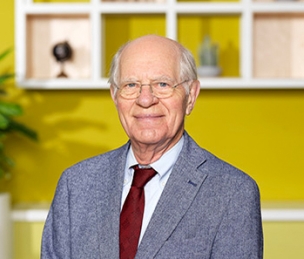Displaying 1 - 9 of 9
-
Levelt, W. J. M. (2020). On becoming a physicist of mind. Annual Review of Linguistics, 6(1), 1-23. doi:10.1146/annurev-linguistics-011619-030256.
Abstract
In 1976, the German Max Planck Society established a new research enterprise in psycholinguistics, which became the Max Planck Institute for Psycholinguistics in Nijmegen, the Netherlands. I was fortunate enough to be invited to direct this institute. It enabled me, with my background in visual and auditory psychophysics and the theory of formal grammars and automata, to develop a long-term chronometric endeavor to dissect the process of speaking. It led, among other work, to my book Speaking (1989) and to my research team's article in Brain and Behavioral Sciences “A Theory of Lexical Access in Speech Production” (1999). When I later became president of the Royal Netherlands Academy of Arts and Sciences, I helped initiate the Women for Science research project of the Inter Academy Council, a project chaired by my physicist sister at the National Institute of Standards and Technology. As an emeritus I published a comprehensive History of Psycholinguistics (2013). As will become clear, many people inspired and joined me in these undertakings. -
Levelt, W. J. M. (2020). The alpha and omega of Jerome Bruner's contributions to the Max Planck Institute for Psycholinguistics. In M. E. Poulsen (
Ed. ), The Jerome Bruner Library: From New York to Nijmegen (pp. 11-18). Nijmegen: Max Planck Institute for Psycholinguistics.Abstract
Presentation of the official opening of the Jerome Bruner Library, January 8th, 2020Additional information
Link to booklet - The Jerome Bruner Library: From New York to Nijmegen -
Levelt, W. J. M. (2018). Is language natural to man? Some historical considerations. Current Opinion in Behavioral Sciences, 21, 127-131. doi:10.1016/j.cobeha.2018.04.003.
Abstract
Since the Enlightenment period, natural theories of speech and language evolution have florished in the language sciences. Four ever returning core issues are highlighted in this paper: Firstly, Is language natural to man or just an invention? Secondly, Is language a specific human ability (a ‘language instinct’) or does it arise from general cognitive capacities we share with other animals? Thirdly, Has the evolution of language been a gradual process or did it rather suddenly arise, due to some ‘evolutionary twist’? Lastly, Is the child's language acquisition an appropriate model for language evolution? -
Friederici, A., & Levelt, W. J. M. (1987). Resolving perceptual conflicts: The cognitive mechanism of spatial orientation. Aviation, Space, and Environmental Medicine, 58(9), A164-A169.
-
Friederici, A., & Levelt, W. J. M. (1987). Spatial description in microgravity: Aspects of cognitive adaptation. In P. R. Sahm, R. Jansen, & M. Keller (
Eds. ), Proceedings of the Norderney Symposium on Scientific Results of the German Spacelab Mission D1 (pp. 518-524). Köln, Germany: Wissenschaftliche Projektführung DI c/o DFVLR. -
Friederici, A., & Levelt, W. J. M. (1987). Sprache. In K. Immelmann, K. Scherer, & C. Vogel (
Eds. ), Funkkolleg Psychobiologie (pp. 58-87). Weinheim: Beltz. -
Levelt, W. J. M. (1987). Hochleistung in Millisekunden - Sprechen und Sprache verstehen. In Jahrbuch der Max-Planck-Gesellschaft (pp. 61-77). Göttingen: Vandenhoeck & Ruprecht.
-
Levelt, W. J. M., & d'Arcais, F. (1987). Snelheid en uniciteit bij lexicale toegang. In H. Crombag, L. Van der Kamp, & C. Vlek (
Eds. ), De psychologie voorbij: Ontwikkelingen rond model, metriek en methode in de gedragswetenschappen (pp. 55-68). Lisse: Swets & Zeitlinger. -
Levelt, W. J. M., & Schriefers, H. (1987). Stages of lexical access. In G. A. Kempen (
Ed. ), Natural language generation: new results in artificial intelligence, psychology and linguistics (pp. 395-404). Dordrecht: Nijhoff.

Share this page